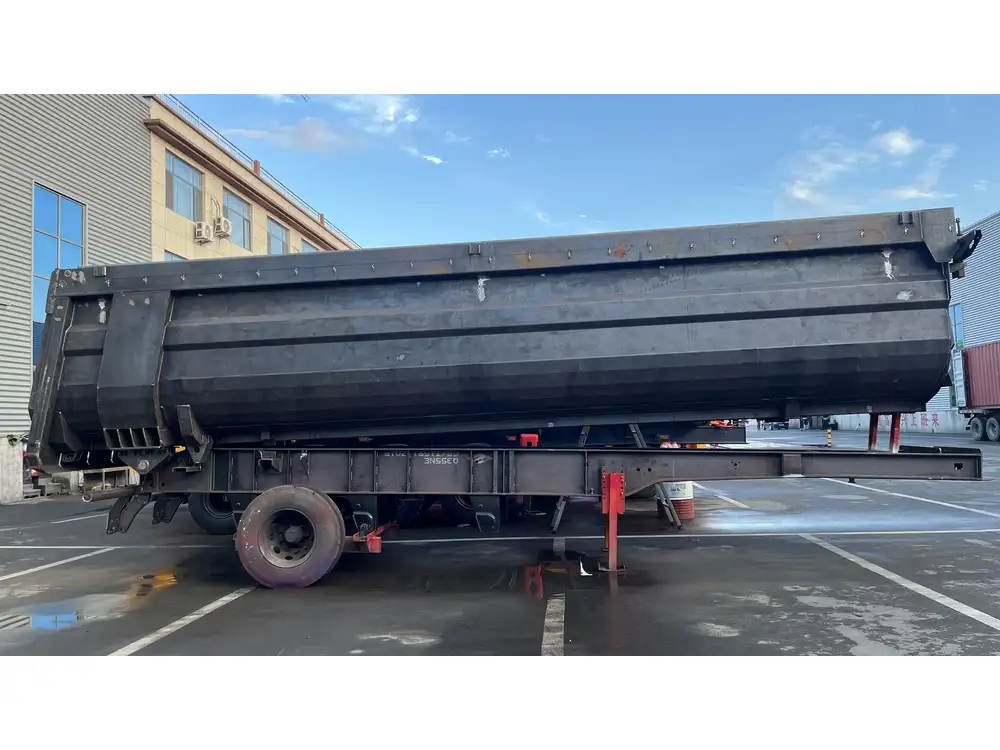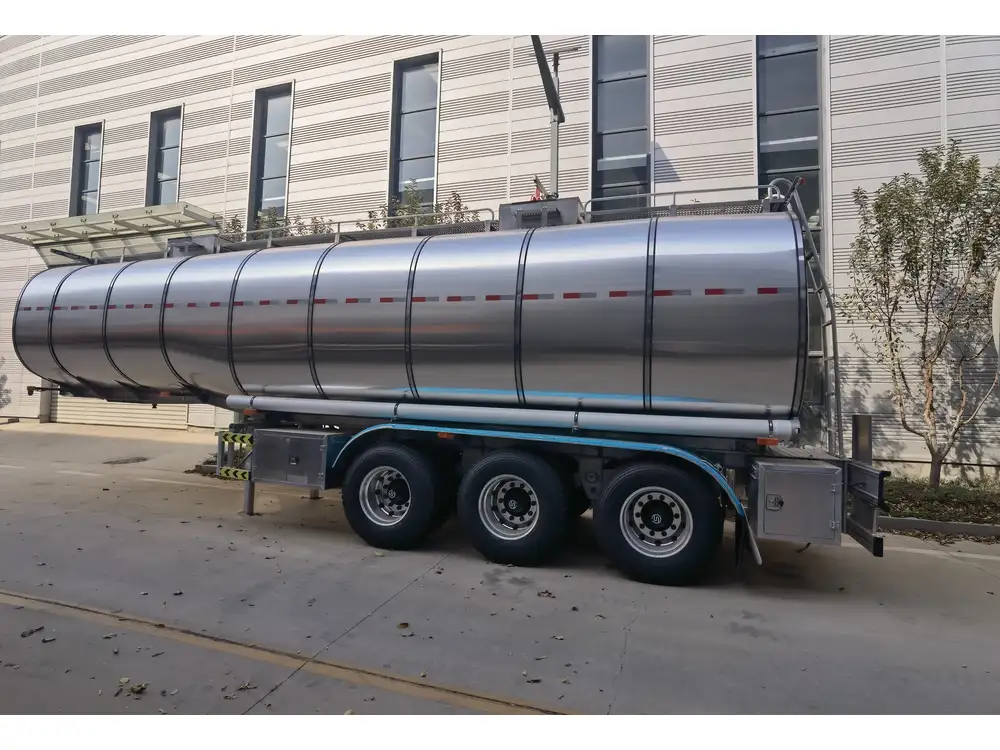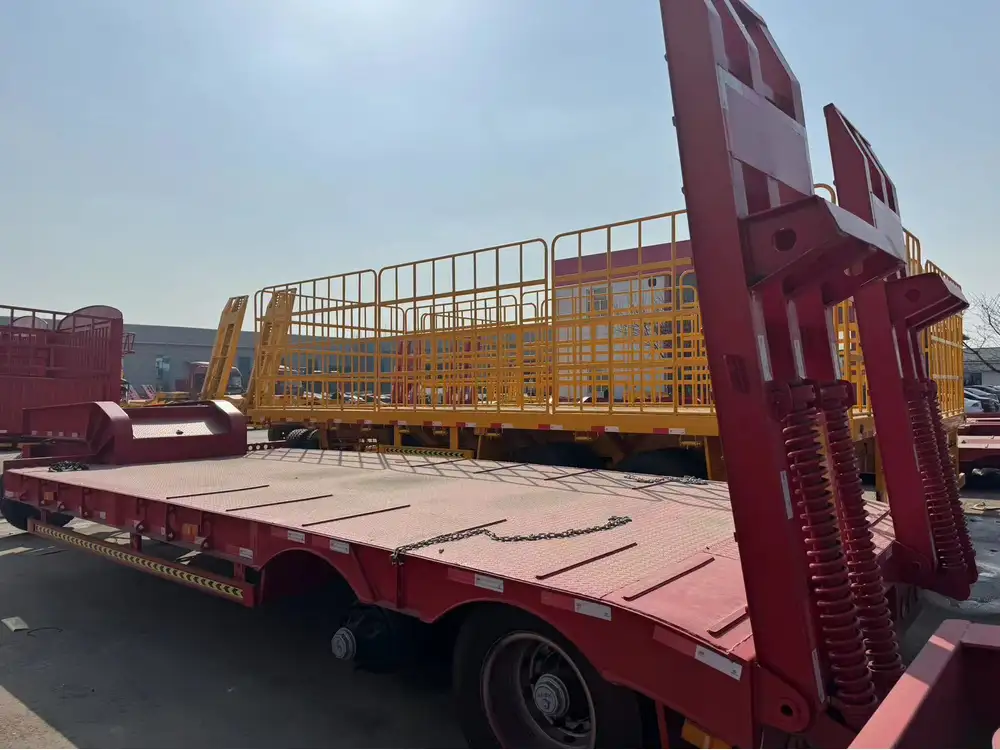When contemplating the purchase of a dump trailer, potential buyers often find themselves grappling with an array of considerations. From heavy-duty hauling needs to the nuances of trailer types, understanding whether a dump trailer is the right investment for you is paramount. Here, we delve deeply into the multifaceted aspects of dump trailers to unveil insightful answers to this pivotal question.
Understanding Dump Trailers: Key Features and Functionalities
What is a Dump Trailer?
A dump trailer is a specialized type of trailer designed for the purpose of transporting loose materials, such as sand, gravel, and construction debris. Unlike standard trailers, dump trailers feature a hydraulic lift mechanism, allowing users to raise and dump the contents with ease, maximizing efficiency in various hauling tasks.
| Feature | Description |
|---|---|
| Load Capacity | Varies by model; typically ranges from 5,000 to 20,000 lbs or more. |
| Hydraulic System | Facilitates easy unloading with a push of a button; available in single or dual axles. |
| Bed Materials | Commonly constructed from steel or aluminum for durability. |
| Additional Features | Might include ramps, side walls, and tie-down points for securing loads. |

Types of Dump Trailers
To get a clearer perspective, it’s essential to dissect the different categories of dump trailers available:
Single Axle Dump Trailers:
- Ideal for: Light to moderate hauling.
- Capacity: Generally holds up to 7,000 lbs.
- Advantages: Maneuverability and reduced purchase cost.
Dual Axle Dump Trailers:
- Ideal for: Heavy-duty applications.
- Capacity: Can handle anywhere from 10,000 to 20,000 lbs.
- Advantages: Greater stability and hauling efficiency.
Gooseneck Dump Trailers:
- Ideal for: Large-capacity needs.
- Capacity: Often exceeds 20,000 lbs.
- Advantages: Better weight distribution and towing stability.
Tilt Dump Trailers:
- Ideal for: Easy loading and unloading.
- Capacity: Similar ranges as others, especially suited for certain job types.
- Advantages: The tilt feature eliminates the need for a hydraulic lift.
| Type | Best For | Weight Capacity | Pros |
|---|---|---|---|
| Single Axle | Light loads | Up to 7,000 lbs | Affordable and maneuverable |
| Dual Axle | General use | 10,000 – 20,000 lbs | Enhanced stability |
| Gooseneck | Heavy-duty tasks | 20,000 lbs and above | Superior towing performance |
| Tilt | Easy handling | Varies | Simplifies loading/unloading |
Assessing Your Needs: Why Consider a Dump Trailer?
By evaluating your specific requirements, you can identify the reasons that make a dump trailer a potential necessity. Here are compelling use cases to consider:
Construction and Landscaping
For contractors and landscapers, a dump trailer is an indispensable tool. Not only does it streamline the transportation of heavy materials, but it also simplifies waste disposal. The convenience of hydraulics allows for swift unloading at job sites, enhancing productivity.

Personal Projects
Homeowners embarking on DIY renovations or landscaping projects can also benefit significantly. The ability to easily transport and dispose of waste materials saves both time and effort, transforming potentially arduous tasks into manageable endeavors.
Versatility in Use
A dump trailer is not solely designated for construction or landscaping. Its versatility extends to various applications, including but not limited to:
- Agricultural Uses: Transporting feed, soil, or equipment.
- Recreational Hauling: Moving camping gear or ATVs.
- Home Improvement Projects: Facilitating the removal of debris from renovations.
Costs Associated with Purchasing a Dump Trailer
Before diving headfirst into a purchase, it’s critical to scrutinize the financial implications. Prices for dump trailers can fluctuate substantially based on several factors:
Type of Trailer: As identified earlier, different types come with differing capacities and capabilities, which directly affect the price.
Material Quality: Steel trailers typically cost less than aluminum counterparts, which offer enhanced corrosion resistance but at a premium price.
Tractor Versus Manual:
- Hydraulic systems increase the trailer’s utility but add to the overall cost.
- Manual models are lower in price but require more physical effort to operate.
Brand Reputation: Established manufacturers often charge more due to product reliability and customer service.

Estimated Price Ranges
| Trailer Type | Approximate Cost |
|---|---|
| Single Axle Dump Trailer | $3,000 – $7,000 |
| Dual Axle Dump Trailer | $5,000 – $15,000 |
| Gooseneck Dump Trailer | $10,000 – $25,000 |
| Tilt Dump Trailer | $5,000 – $12,000 |
Evaluating the Pros and Cons of Dump Trailers
Every investment warrants a thorough examination of its advantages and disadvantages. Understanding these characteristics will enable you to make a well-informed decision.
Advantages
- Efficiency: The ability to dump materials quickly reduces the labor required, saving time on job sites.
- Durability: Quality dump trailers are built to withstand rigorous use in various environments.
- Versatile Applications: Suitable for multiple industries and projects, enhancing its utility over time.

Disadvantages
- Initial Investment Cost: The upfront expense can be significant, especially for high-capacity models.
- Maintenance Requirements: Depending on usage, regular maintenance is necessary to ensure optimal performance.
- Storage Needs: A dump trailer requires adequate space for parking when not in use.
Comparative Analysis of Alternatives
| Option | Pros | Cons |
|---|---|---|
| Dump Trailer | High efficiency | Higher initial cost |
| Standard Trailer | Lower cost | Manual unloading required |
| Towable Storage Units | Portable | Limited load capacity |
Essential Features to Look For
When narrowing down the options for a dump trailer, certain features become critical. They dictate not only the usability but also the longevity of the trailer. Here are notable features to consider:
Hydraulic Lift System: Explore trailers with reliable hydraulic systems, ensuring smooth operation and robust lifting capabilities.
Safety Features: Look for braking systems and safety chains that enhance towing safety and prevent accidents.
Tailgate Options: Detachable rear doors can facilitate diverse unloading configurations, which can be beneficial for different materials.
Durable Construction Materials: Evaluating the materials used in the trailer’s construction can save you from frequent repairs or replacements.

Financing Options for Your Dump Trailer Purchase
Acquiring a dump trailer can be a substantial investment. Understanding financing options can ease the financial burden and improve affordability. Here are common methods available to potential buyers:
- Trailers on Loan: Secured loans specifically for trailers often offer lower interest rates.
- Credit Financing: Some retailers or manufacturers provide financing plans at competitive rates.
- Leasing Options: Leasing can enable access to a dump trailer without the long-term commitment of purchasing, ideal for those needing it for short-term projects.
Conclusion: Making Your Final Decision
The inquiry of “Should I buy a dump trailer?” ultimately rests upon a myriad of factors intertwined with personal needs, financial situations, and potential applications. By evaluating your workload, understanding the features that suit your requirements, and comprehensively weighing the pros and cons, you can reach an educated verdict. Dump trailers offer a perfect blend of utility, efficiency, and adaptability, making them an invaluable resource for both personal usage and professional endeavors.
Before finalizing your decision, consider visiting local retailers or manufacturers, consulting with professionals, and absorbing insights from current owners. With the right dump trailer in tow, your hauling tasks will not only become simpler but also more efficient, enabling you to embrace larger projects and unlock new opportunities.



